Are you considering switching to solar energy in Jacksonville, Florida? Look no further! This article provides a concise overview of solar companies specializing in installations in Jacksonville. From reliable customer reviews to affordable pricing options, these reputable companies offer a wide range of solar solutions to help you reduce your carbon footprint and save money on energy bills. Get ready to harness the power of the sun and make a positive impact on the environment by exploring the top solar companies in Jacksonville, Florida.
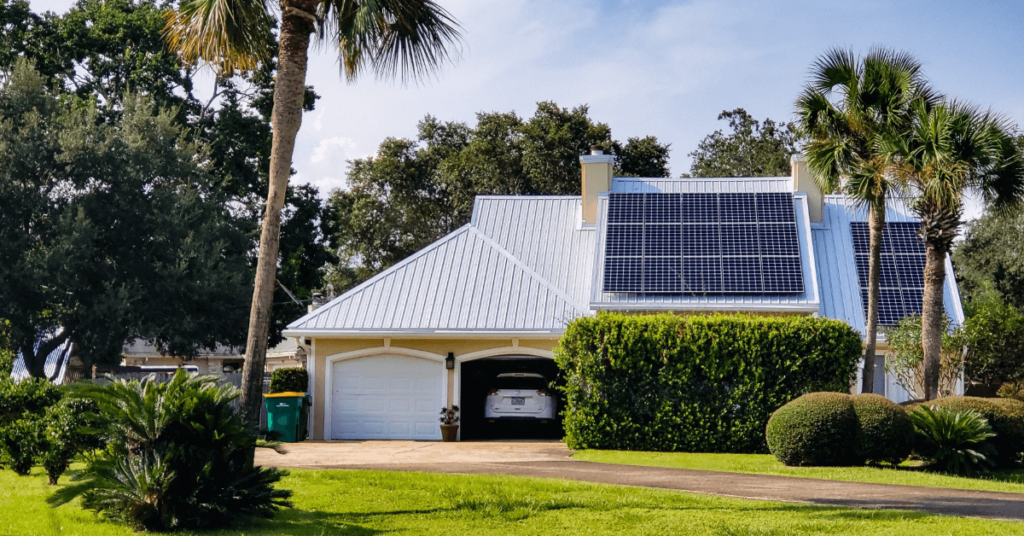
The Benefits of Solar Energy
Reduced Electricity Costs
Switching to solar energy can significantly decrease your electricity bills. By harnessing the power of the sun, you can generate your own clean and renewable energy, reducing your reliance on the grid. As a result, you’ll be able to save money on your monthly electricity costs. In fact, studies have shown that homeowners who install solar panels can reduce their electricity bills by up to 50% or more.
Environmentally Friendly
One of the greatest advantages of solar energy is its positive impact on the environment. Unlike traditional energy sources, such as fossil fuels, solar energy is clean, renewable, and does not emit harmful greenhouse gases into the atmosphere. By making the switch to solar, you can help reduce your carbon footprint and contribute to a more sustainable future for our planet.
Financial Incentives
When it comes to solar energy, there are a multitude of financial incentives available to homeowners. These incentives are designed to make solar more affordable and attractive for individuals and families. Some examples include federal tax credits, state rebates, and local incentives. By taking advantage of these incentives, you can significantly reduce the upfront costs of solar installation and maximize your savings.
Energy Independence
Solar energy provides homeowners with a significant degree of energy independence. By generating your own electricity, you are no longer entirely reliant on the traditional power grid. This is especially beneficial during power outages or times of high electricity demand when the grid may be strained. With solar panels, you can have peace of mind knowing that you have a reliable source of energy that is not subject to fluctuations in the grid.
Increased Property Value
Installing solar panels can also increase the value of your property. Studies have shown that homes equipped with solar energy systems have higher resale values compared to homes without solar. Potential buyers are increasingly looking for homes with energy-efficient features, and solar panels are a highly attractive selling point. By investing in solar, you not only save money on electricity bills but also enhance the value of your home for the future.
Choosing the Right Solar Company
Credentials and Certifications
When choosing a solar company, it’s important to consider their credentials and certifications. Look for a company that is licensed and insured, as well as certified by reputable organizations such as the North American Board of Certified Energy Practitioners (NABCEP). These credentials ensure that the company has met strict standards and possesses the necessary expertise to install solar systems safely and effectively.
Experience and Track Record
Experience matters when it comes to solar installation. A solar company with a solid track record demonstrates their ability to deliver high-quality installations and exceptional customer service. Look for a company that has been in the industry for several years and has successfully completed numerous installations. This experience not only indicates their proficiency but also gives you confidence in their ability to handle your specific project.
Customer Reviews and Testimonials
Reading customer reviews and testimonials is a great way to gauge a solar company’s reputation and customer satisfaction. Check online review platforms and their website to see what previous customers have to say about their experience. Positive reviews and testimonials indicate a company’s commitment to delivering excellent results and providing exceptional service.
Warranty and Support
A reputable solar company should offer warranties on their products and services. Look for a company that provides a comprehensive warranty package that covers both equipment and installation. This ensures that you are protected in the event of any issues or defects. Additionally, inquire about the company’s customer support and after-sales service. Having reliable support can be crucial for any future maintenance or troubleshooting needs.
Pricing and Financing Options
While pricing is an important factor, it should not be the sole determinant in your decision-making process. Consider the overall value and quality offered by the company, rather than solely opting for the cheapest option. A reputable company will provide transparent and competitive pricing, as well as flexible financing options to suit your budget and needs. Look for companies that offer solar loans, lease options, or power purchase agreements (PPAs) to help make solar more affordable for you.
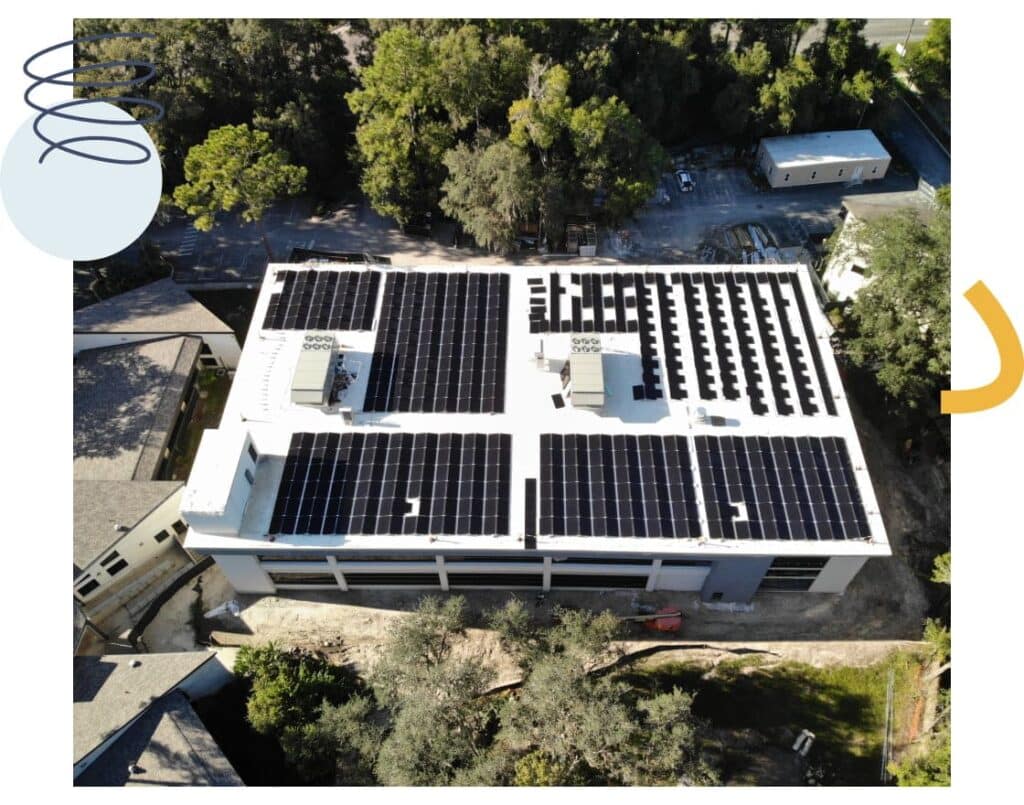
Factors to Consider for Solar Installation
Roof Suitability
Before installing solar panels, it’s important to assess the suitability of your roof. Factors such as the age, condition, and orientation of your roof can impact the effectiveness and efficiency of your solar system. Ideally, your roof should have a south-facing orientation with minimal shading from nearby trees or buildings. Additionally, the roof should be structurally sound and capable of supporting the weight of the solar panels.
Sun Exposure
The amount of sunlight your property receives is a crucial factor in determining the viability of solar installation. The more sunlight your solar panels can capture, the more electricity they can generate. Consider the position of your property and any potential obstructions that may cast shadows on your roof. It’s important to have a good understanding of your property’s sun exposure throughout the day and year to maximize the energy production of your solar system.
Energy Consumption
Assessing your energy consumption is vital in determining the size of the solar system you require. Review your electricity bills to understand your average monthly and annual usage. This information will guide you in selecting the appropriate size of the solar system to offset your energy needs. A reputable solar company can help you analyze your energy consumption patterns and recommend the optimum system size to meet your requirements.
Permits and Regulations
Solar installations typically require permits and must adhere to local regulations. Before proceeding with installation, it’s important to familiarize yourself with the permitting process and any applicable regulations in your area. A reputable solar company will have experience navigating these requirements and can guide you through the process, ensuring all necessary permits and approvals are obtained.
System Size and Type
The size and type of solar system you choose will depend on various factors, including your energy consumption, available roof space, and budget. There are different types of solar systems, such as grid-tied, off-grid, and hybrid systems. Each has its own advantages and considerations. A qualified solar company can assess your needs and recommend the most suitable system size and type for your specific requirements.
Step-By-Step Solar Installation Process
Initial Consultation
The solar installation process begins with an initial consultation with a solar company. During this consultation, the company will assess your property, discuss your energy needs, and answer any questions you may have. This is an opportune time to share your goals, preferences, and any specific requirements you have for your solar system.
System Design and Engineering
Once you’ve decided to move forward, the solar company will design a custom system tailored to your property and energy needs. This involves conducting a detailed assessment of your roof’s suitability, calculating energy production estimates, and selecting the appropriate solar panels and components. The design phase ensures that your solar system will be optimized for efficiency and performance.
Permitting and Paperwork
Before installation can commence, the necessary permits and paperwork must be obtained. Your solar company will handle the permitting process on your behalf, ensuring that all required documents and approvals are obtained. This step may involve submitting structural and electrical plans, as well as coordinating with local authorities and utility companies.
Installation and Equipment Setup
With the permits in place, the solar company will begin the installation process. This typically involves mounting the solar panels on your roof, installing the inverter and other components, and connecting the system to your electrical panel. During this phase, skilled technicians will ensure that the system is installed safely and according to industry standards.
Inspection and Interconnection
After installation, your solar system will need to undergo a thorough inspection to ensure compliance with local regulations and safety standards. This inspection may be conducted by the local building department or a third-party inspector. Once the system passes inspection, your solar company will coordinate with your utility company to interconnect your solar system to the grid.
Monitoring and Maintenance
Once your solar system is up and running, it’s important to regularly monitor its performance to ensure optimal energy production. Many solar companies offer monitoring services that allow you to track your system’s energy production and identify any issues. Additionally, periodic maintenance, such as cleaning the solar panels and checking the inverter, may be required to keep your system functioning efficiently. Your solar company can provide guidance on proper maintenance procedures or offer maintenance packages to ensure the longevity and performance of your solar system.
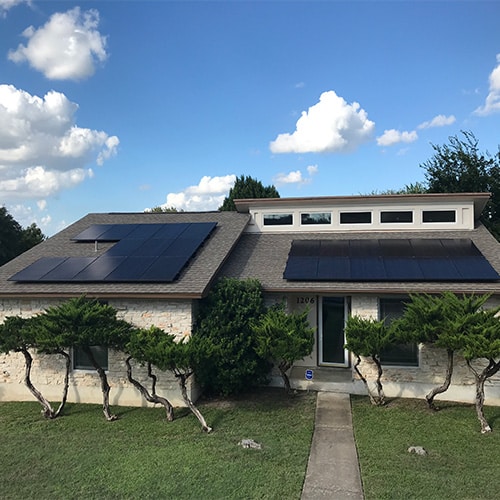
Solar Energy Financing Options
Solar Loan Programs
Solar loan programs are a popular financing option that allows homeowners to finance the upfront costs of solar installation. With a solar loan, you can spread the cost of your solar system over a period of time, making it more affordable. These loans often come with favorable terms and competitive interest rates, helping you save money in the long run. Additionally, you may be eligible for federal or state tax incentives that can further reduce the cost of your solar loan.
Power Purchase Agreements (PPAs)
A power purchase agreement (PPA) is an arrangement where a solar company installs and maintains the solar system on your property, and you purchase the electricity generated by the system at a predetermined rate. With a PPA, you do not own the solar system, but you can benefit from reduced electricity costs without the upfront investment. PPAs are particularly attractive for homeowners who want to enjoy the benefits of solar energy without the financial responsibility of owning and maintaining the system.
Solar Lease Options
Similar to PPAs, solar lease options allow homeowners to lease a solar system from a solar company. With a solar lease, you pay a monthly lease payment to the solar company in exchange for the use of the system. While you do not own the solar system, you can still benefit from the electricity it generates, usually at a lower rate than your utility company’s rates. Solar leases offer a hassle-free way to enjoy the benefits of solar energy without the upfront costs or maintenance responsibilities.
Property Assessed Clean Energy (PACE) Financing
Property Assessed Clean Energy (PACE) financing is a unique financing option that allows homeowners to finance their solar installations through an assessment attached to their property taxes. With PACE financing, you can pay for your solar system over an extended period of time through your property tax payments. This type of financing offers competitive interest rates and allows you to transfer the payments to the new owner if you decide to sell your home.
Federal and State Incentives
In addition to financing options, federal and state governments offer various incentives to encourage the adoption of solar energy. The federal government provides the Investment Tax Credit (ITC), which allows homeowners to claim a percentage of the total cost of their solar system as a tax credit. Additionally, some states offer their own incentives, such as rebates, grants, or performance-based incentives. These incentives can significantly reduce the upfront costs of solar installation and make solar energy even more affordable.
Evaluating Solar Energy Savings
Return on Investment (ROI)
When considering solar energy, it’s important to assess the return on investment (ROI). The ROI takes into account the upfront costs of solar installation and the savings you’ll realize over time. By comparing your expected energy savings to the initial investment, you can determine how long it will take for your solar system to pay for itself. A shorter payback period generally indicates a higher ROI and greater long-term savings.
Net Energy Metering (NEM)
Net Energy Metering (NEM) is a billing arrangement that allows solar panel owners to receive credits for the excess electricity they generate and send back to the grid. With NEM, your utility company measures both the electricity you consume from the grid and the excess electricity your solar system produces. The credits you earn can offset future electricity bills, further reducing your overall energy costs. NEM policies vary by location, so it’s important to understand the specific regulations and benefits in your area.
Utility Bill Savings
One of the primary benefits of solar energy is the significant reduction in utility bills. By generating your own electricity, you can offset a substantial portion of your energy consumption, resulting in lower monthly bills. The amount of savings will depend on various factors, including the size of your solar system, your energy consumption, and the local electricity rates. Over time, the savings can add up, helping you achieve long-term cost reductions.
Payback Period
The payback period refers to the amount of time it takes for the savings from your solar system to equal or exceed the initial investment. A shorter payback period indicates that you will recoup your investment more quickly and begin enjoying greater savings. Factors such as your energy consumption, the cost of electricity in your area, and the financing option you choose can all impact the payback period. Evaluating the payback period can help you assess the financial feasibility of solar installation.
Long-Term Cost Savings
In addition to immediate savings on your electricity bills, solar energy offers long-term cost savings. As utility rates continue to rise, your solar system allows you to lock in a fixed rate for your electricity. This predictable energy cost helps protect you from future rate hikes, ensuring that your savings continue to grow over time. The longer you have solar panels, the more savings you’ll accumulate, ultimately helping you achieve greater financial stability and independence.
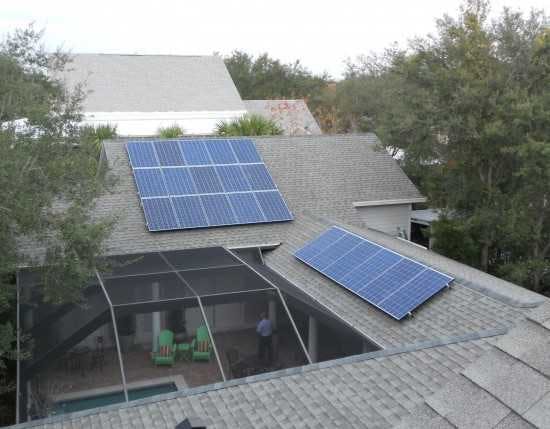
Maintenance and Upkeep of Solar Systems
Regular Cleaning
Regular cleaning of your solar panels is important to maintain their efficiency and maximize energy production. Accumulated dirt, dust, and debris on the surface of the panels can reduce their ability to capture sunlight. Depending on your location and the environmental conditions, you may need to clean your panels every few months or as needed. Use a soft brush or sponge with a mild detergent and water to gently clean the surface. Avoid using abrasive cleaners or scrubbing too vigorously, as this can damage the panels.
Monitoring System Performance
Monitoring the performance of your solar system is crucial to ensure it is functioning optimally. Many solar companies offer monitoring systems that allow you to track the energy production of your panels in real-time. By regularly reviewing the system’s performance, you can identify any issues or inefficiencies and address them promptly. Monitoring also provides valuable insights into your energy consumption patterns, allowing you to make adjustments to further optimize your system’s performance.
Inverter Maintenance
The inverter is an essential component of your solar system that converts the DC electricity generated by the panels into the AC electricity used in your home. Regular maintenance of the inverter is important to ensure its proper functioning. Keep the area around the inverter clean and free from debris, and inspect it periodically for any signs of damage or wear. If you notice any issues, such as error codes or abnormal behavior, contact your solar company for assistance.
Battery Maintenance
If your solar system includes a battery storage component, proper maintenance is necessary to ensure its longevity and performance. Follow the manufacturer’s guidelines for battery maintenance, which typically include regular inspections, cleaning, and checks for battery fluid levels. It’s important to regularly monitor the battery’s charge levels and ensure it is properly connected to your solar system. If you experience any issues or abnormalities with your battery, contact your solar company for professional assistance.
Professional Inspections
Periodic professional inspections are essential for the long-term performance and safety of your solar system. A qualified solar technician can conduct a thorough inspection, checking for any signs of wear, damage, or malfunctions. They can also ensure that your system is operating within optimal parameters and in compliance with all relevant safety regulations. Regular inspections provide peace of mind and help identify any potential issues before they escalate into more significant problems.
Solar Company Certifications and Standards
NABCEP Certification
The North American Board of Certified Energy Practitioners (NABCEP) is a widely recognized certification program for solar professionals. Achieving NABCEP certification demonstrates a high level of knowledge, skill, and professionalism in the solar industry. When choosing a solar company, look for technicians and installers who hold NABCEP certifications, as this ensures that they have met rigorous standards and are qualified to handle your solar installation.
UL Listing
Underwriters Laboratories (UL) is a globally recognized safety certification organization. A solar company’s UL listing indicates that their products and installations have been tested and certified to meet industry safety standards. UL-listed components and systems give homeowners peace of mind, knowing that their solar installation has undergone rigorous testing to ensure its safety and performance.
Energy Star Certification
Energy Star certification is a voluntary program that identifies products and systems that meet strict energy efficiency criteria. Solar panels and inverters that carry the Energy Star label have been independently tested and verified to deliver superior energy performance. Choosing a solar company that offers Energy Star certified products can help ensure that you are investing in high-quality, energy-efficient equipment.
SEIA Membership
The Solar Energy Industries Association (SEIA) is the national trade association for the solar industry in the United States. Solar companies that are members of SEIA demonstrate their commitment to upholding high ethical and professional standards in the industry. SEIA members have access to valuable resources, industry updates, and networking opportunities, which further enhance their knowledge and expertise.
BBB Accreditation
Better Business Bureau (BBB) accreditation is a mark of trust and integrity. A solar company with BBB accreditation has been vetted by the organization and meets their stringent standards for ethical business practices. BBB accreditation signifies that the company is committed to resolving customer issues, providing transparent and accurate information, and delivering exceptional service. When considering solar companies, look for those with a good BBB rating and accreditation.
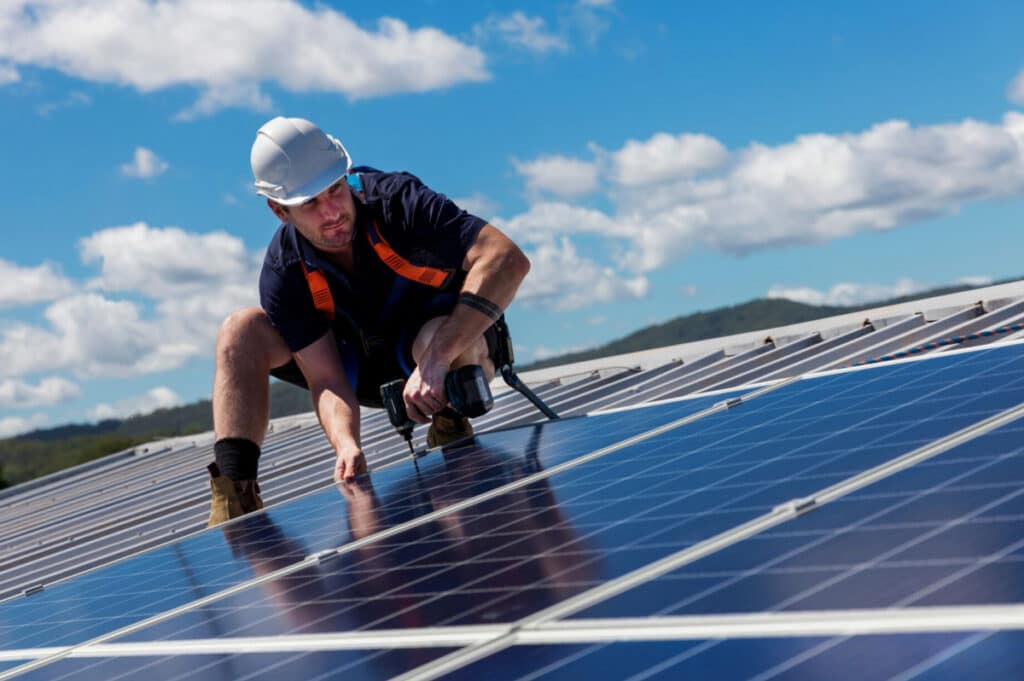
Common Misconceptions about Solar Energy
High Cost of Installation
One common misconception about solar energy is that the installation costs are prohibitively high. While it’s true that there are upfront costs associated with solar installation, it’s important to consider the long-term savings and return on investment. With various financing options and government incentives available, the cost of solar installation has become more affordable than ever. Additionally, advancements in technology and increased competition in the solar industry have contributed to a decrease in installation costs.
Insufficient Sun Exposure
Another misconception is that solar energy is only viable in sunny regions with abundant sun exposure. While it’s true that solar panels require sunlight to generate electricity, they can still operate and produce energy even during cloudy or less sunny periods. Solar panels are designed to capture and convert sunlight into electricity, and advancements in technology have made them more efficient at capturing sunlight in low-light conditions. Additionally, the size and orientation of your solar system can be optimized to maximize energy production based on your specific location and sun exposure.
Reliability and Durability
Some people may question the reliability and durability of solar panels, fearing that they may not withstand harsh weather conditions or have a short lifespan. In reality, solar panels are designed to be robust and withstand various weather conditions, including hail, high winds, and extreme temperatures. Most solar panels come with extensive warranties, ensuring their performance and durability for decades. When installed by a reputable solar company and properly maintained, solar panels can provide reliable and consistent energy production for many years.
Limited Applications
Many individuals believe that solar energy can only be used to generate electricity for residential properties. However, solar energy has a wide range of applications beyond residential use. Solar power can be utilized in commercial buildings, industrial facilities, agricultural operations, and even in remote areas where grid electricity is not available. Additionally, solar energy can be harnessed for heating water, charging electric vehicles, and powering various outdoor applications, such as lighting and irrigation systems. The versatility of solar energy makes it a viable option for a wide range of applications.
Complexity of Maintenance
Some people may shy away from solar energy due to concerns about the complexity and demands of maintenance. In reality, solar systems require minimal maintenance and upkeep. Regular cleaning of the panels and periodic inspections are typically the extent of the maintenance requirements. Most reputable solar companies offer monitoring services that allow you to track your system’s performance and identify any issues, simplifying the maintenance process. Overall, solar systems are designed to be low-maintenance, providing homeowners with a hassle-free solution for clean and reliable energy.
FAQs about Solar Companies Installation
How much does a solar installation cost?
The cost of solar installation can vary depending on several factors, including the size of the system, the complexity of the installation, and the specific equipment used. On average, a residential solar installation can range from $10,000 to $30,000 or more. However, it’s important to consider the long-term savings and return on investment that solar energy offers. Additionally, various financing options and government incentives are available to help make solar installation more affordable and accessible.
What are the benefits of leasing solar panels?
Leasing solar panels offers several benefits for homeowners. By leasing, you can enjoy the benefits of solar energy without the upfront costs of installation. Leasing also provides predictable monthly payments, which are often lower than your utility bills, resulting in immediate savings. Additionally, leasing allows you to avoid the maintenance responsibilities, as the leasing company is typically responsible for upkeep and repairs. However, it’s important to carefully consider the terms and conditions of the lease agreement to ensure it aligns with your long-term goals and financial needs.
How long does a solar installation take?
The duration of a solar installation can vary depending on various factors, including the size of the system, the complexity of the installation, and any necessary permits or inspections. On average, a residential solar installation can take anywhere from a few days to several weeks. The process typically involves an initial consultation, system design, permitting, installation, and final inspections. A reputable solar company will provide a timeline and keep you informed throughout the installation process.
Do solar installations require regular maintenance?
Solar installations require minimal maintenance, but some routine tasks are necessary to ensure optimal performance. Regular cleaning of the solar panels to remove dirt and debris is recommended to maximize energy production. Additionally, periodic inspections of the system and its components are important to identify any issues or abnormalities. While maintenance requirements are minimal, it’s important to follow the manufacturer’s guidelines and consult with your solar company to ensure proper maintenance procedures.
Are there any tax incentives for solar installations?
Yes, there are several tax incentives available for solar installations. The federal government offers the Investment Tax Credit (ITC), which allows homeowners to claim a percentage of the total cost of their solar system as a tax credit. Currently, the ITC offers a 26% credit for residential solar installations. Some states and local jurisdictions also offer their own incentives, such as rebates, grants, or property tax exemptions. These incentives can significantly reduce the upfront costs of solar installation and accelerate your return on investment. It’s important to consult with a tax professional or your solar company to understand the specific incentives available to you.
